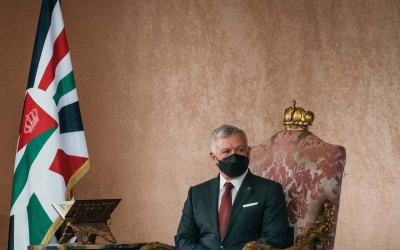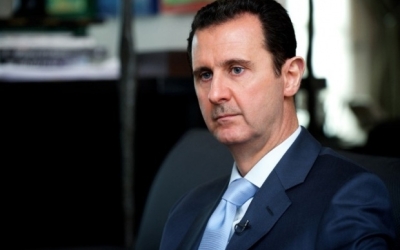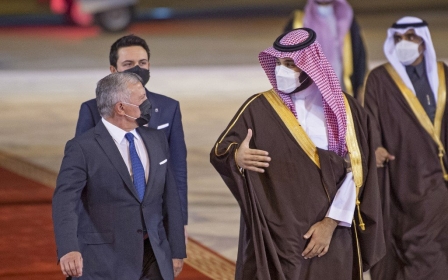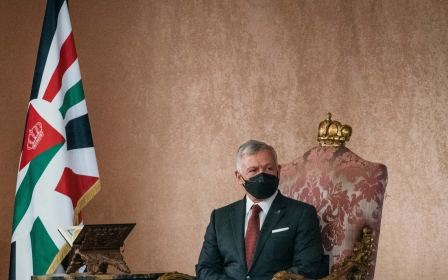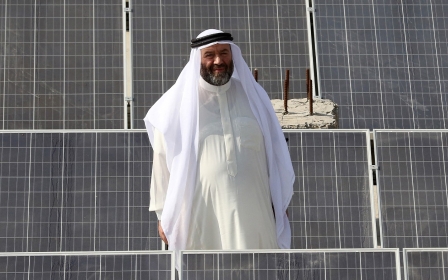Arab states must do 'heavy lifting' in the region as US pulls back, says Jordan's foreign minister
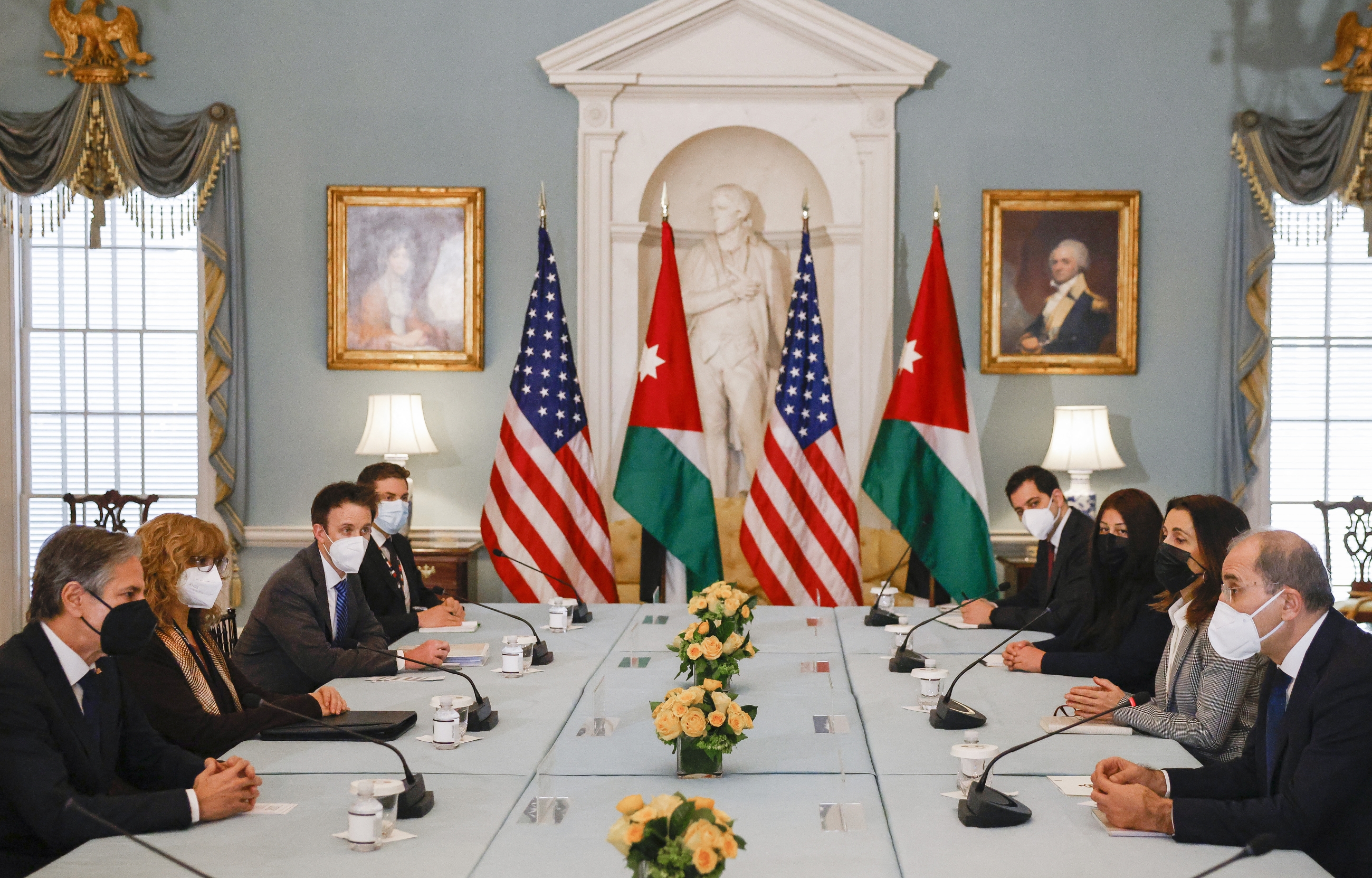
Jordan's foreign minister has said Middle Eastern countries have to do the "heavy lifting" and address regional problems, as the US pulls back and focuses on a series of challenges stemming from Russia and China.
Speaking at a virtual event hosted by the Brookings Institution, Ayman Safadi also warned of a case of "institutionalised" apartheid if a two-state solution was not reached between the Israelis and Palestinians.
"We cannot just rely solely on the US to do everything for us," Safadi said. "We have to engage in two-way traffic whereby we do what we have to do, and the US is there to support and come up with ideas," he added.
Safadi is visiting Washington on Thursday and his trip comes at a busy time for the Biden administration, as it is preoccupied with a possible Russian invasion of Ukraine and rising trade tensions with China.
Since assuming office, the Biden administration has shifted its focus towards China, which has seen a rise in power, both economically and militarily, over the past several decades.
New MEE newsletter: Jerusalem Dispatch
Sign up to get the latest insights and analysis on Israel-Palestine, alongside Turkey Unpacked and other MEE newsletters
Last year, the White House reoriented its foreign policy priorities with a new focus on China and Asia, reducing the number of staff devoted to the Middle East, Politico reported. The administration has also reduced its military posture in some countries, pulling out patriot antimissile batteries.
Speaking at the event, Safadi said restarting negotiations between the Israelis and Palestinians was at the "top" of his agenda while in Washington, where he is expected to meet several US officials, including Secretary of State Antony Blinken on Thursday.
"Ultimately, Middle East peace cannot jump over the core issue, which is the Palestinian-Israeli issue," Safadi said.
The veteran diplomat, who in addition serves as deputy prime minister, also dismissed the notion that separate peace treaties between Israel and Arab states could serve as an "alternative" to addressing the long-standing conflict.
Safadi hit back at claims that the two-state solution was no longer viable, saying: "The one-state solution is not a solution. "It will be the one-state reality and it will be another area whereby apartheid will be institutionalised".
The United States has for decades favoured a two-state solution to the Israel-Palestine conflict.
Focusing on other regional concerns, Safadi said Jordan was in "extremely advanced" discussions on finalising an agreement for the transport of Egyptian gas to Lebanon.
Lebanon is currently grappling with a financial crisis that has been labelled by the World Bank as one of the worst since the 1850s, with the country's currency having lost 90 percent of its value against the dollar over the past two years.
The UN estimates that 78 percent of the Lebanese population - around three million people - lives below the poverty line, with 36 percent - more than one million people - living in extreme poverty.
A dependable Western partner in counterterrorism operations, Jordan has more recently engaged in a diplomatic role to forge closer ties with Iraq and Egypt.
The three countries held a tripartite summit last year and agreed to enhance security and economic cooperation. Egypt has emerged as a regional leader in liquified natural gas production and the countries have discussed linking their transmission networks. There is also a plan to build an oil export pipeline from the Iraqi city of Basra to the Jordanian port of Aqaba.
Safadi said the three countries are looking for "win-win" scenarios, adding that strengthening regional ties and integrating their economies would benefit Iraq after years of conflict. "Nobody can afford for Iraq not to succeed," he said.
"We are natural partners and there is a lot of complementaries from which everybody will benefit if we are able to maximise our abilities to work together."
Arab role in Syria
On Syria, Safadi warned against "status quo politics" and called for Russian-US cooperation on a political solution to the decade old conflict.
Jordan, which has been heavily impacted by the war and hosts roughly 1.3 million Syrian refugees, has sought to normalise relations with Syria despite heavy criticism from many lawmakers in Washington.
Last year, King Abdullah held his first phone call with President Bashar al-Assad since the start of the war.
Jordan, along with several other Arab countries, is concerned about Iran entrenching itself in the country and is eager to play a role in its reconstruction, estimated to be between $250bn and $400bn.
"It is incomprehensible that everybody gets a set at the table in trying to resolve the Syrian crisis except for a collective Arab role that would be as effective and engaging," Safadi said.
Any differences with Washington over Syria would mark a point of departure for a country that has been a dependable US ally in the region, and long-time recipient of bipartisan support in Congress.
The US is Jordan's largest foreign aid donor. In 2020, it contributed more than $1.5bn to the country, an amount that topped the amount the US provided Egypt, another US partner in the region with a population 10 times the size of Jordan.
"Our friendship is solid," Safadi stated. "The US support for Jordan has been extremely important in enabling us to address the many challenges that we face."
Safadi is in Washington for discussions on renewing a five-year Memorandum of Understanding (MOU) between the two countries.
The current MOU, signed by the former Trump administration, provided Jordan with $1.275bn per year and marked a $275m increase from previous years. It is set to expire in September.
Middle East Eye delivers independent and unrivalled coverage and analysis of the Middle East, North Africa and beyond. To learn more about republishing this content and the associated fees, please fill out this form. More about MEE can be found here.


